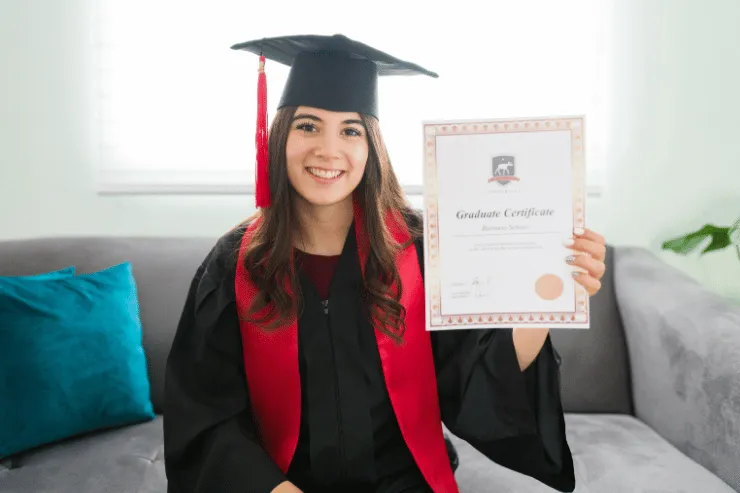
Introduction
In the Indian context, the word “recognition” often brings to mind large university halls, printed certificates, and ceremonial robes on stage. These traditional setups are valuable, no doubt. But in today’s fast-moving, digitally connected world, a new form of recognition has emerged — one that is more flexible, accessible, and personalised.
That form is digital recognition, particularly in the way digital universities are honouring individuals for their contributions through honorary doctorates and virtual ceremonies.
But what exactly makes digital recognition more flexible than traditional ones? Why are more Indians — from small towns to global cities — choosing or accepting recognitions via digital platforms?
Let’s explore.
1. No Physical Boundaries
Traditional recognition events are usually held in physical auditoriums, colleges, or convention halls. This means:
- You must be able to travel
- You need to be physically present
- You must adjust to someone else’s schedule
With digital recognition, these boundaries disappear. An individual can be honoured while sitting at home — in a village in Assam, a flat in Pune, or even from Dubai — without booking tickets or taking leave from work.
Geography no longer limits dignity.
2. Simpler Nomination Processes
In traditional universities, honorary doctorates often involve:
- Internal faculty recommendations
- Government or bureaucratic approvals
- Years of waiting without updates
In contrast, digital universities usually have a transparent, online nomination system. A person or organisation can:
- Submit a short profile
- Attach relevant work summaries
- Provide references or supporting links
The process is not only faster but also more open to grassroots contributors, social workers, homemakers, artists, and entrepreneurs — people often ignored by formal institutions.
3. Recognition Based on Impact, Not Titles
Traditional institutions tend to look at a person’s fame, political reach, or institutional positions. Digital platforms are more flexible in who they honour.
For example, a digital honorary doctorate might go to:
- A rural grandmother reviving folk songs
- A teacher running free tuitions in slums
- A YouTube artist spreading social awareness
- A retired professional mentoring local youth
Impact becomes more important than popularity — and that changes everything.
4. Event Participation Without Barriers
Even when someone receives recognition in a traditional university, attending the event can be difficult:
- Travel costs
- Dress code requirements
- Family unable to join
- Language barriers in formal events
Digital convocations are more inclusive. Family members can join from anywhere, regional language elements can be included, and recipients can wear attire they feel comfortable in — even a saree at home.
It’s celebration without pressure.
5. Recognition in Real Time
Traditional systems often delay recognition. A social worker may retire, an artist may pass away, or a farmer may be forgotten before any recognition comes.
Digital universities move faster. Their systems are structured to honour in the present, not posthumously. This ensures:
- The recipient gets to enjoy the moment
- Their community can celebrate them
- Local impact is enhanced by real-time visibility
Recognition becomes living, not just ceremonial.
6. Hybrid and Creative Formats
Digital recognition doesn’t follow one rigid script. Institutions often use:
- Zoom convocations
- YouTube livestreams
- Pre-recorded tribute videos
- Regional folk music as part of the ceremony
- Slideshows of the recipient’s work
This flexibility allows the recognition to feel deeply personal and culturally relevant. It’s not one-size-fits-all — it’s made to reflect the honouree’s journey.
7. More Room for Diversity
In traditional settings, a limited number of honorary degrees are conferred — sometimes just 3 to 5 per year.
Digital universities can honour many more, without reducing the value. Why?
- No space constraints
- No high logistical costs
- Digital certification is easy to issue securely
- Recognition is shared online and archived permanently
This means women, minorities, rural achievers, and young changemakers all get a fairer chance.
8. Documentation and Verification Made Easy
Modern digital recognitions come with:
- PDF certificates with QR code verification
- Permanent entries in alumni or honouree databases
- Email confirmations with serial numbers
- Digital ID cards in some cases
This makes it easy to share, verify, and prove the recognition in professional or public spaces — including LinkedIn, resumes, or media profiles.
9. Ongoing Connection with the Institution
Traditional recognitions often end with the event. The recipient may never hear from the university again.
Digital platforms are different. They often:
- Add the recipient to an alumni WhatsApp group
- Invite them to future events
- Offer joint project opportunities
- Send digital newsletters
- Share their stories on social media
This creates a community of recognition, not just a certificate.
10. Cost-Effective and Transparent
While traditional awards come with event costs, travel expenses, and ceremony overheads, digital recognitions are:
- Cost-efficient — usually involving a nominal nomination or event charge
- Transparent — with clear documentation of the process
- Sustainable — no paper waste or carbon-heavy events
It allows recognitions to reach more people without financial burden.
Conclusion
Digital recognition — especially through honorary doctorates — is not here to replace tradition. It’s here to complement and extend it.
It is flexible because it removes barriers, focuses on real work, and welcomes stories that matter — whether they come from a city CEO or a rural craftswoman.
As India grows more digitally connected, we need systems that honour our people where they are, not just where the spotlight shines. Digital recognition does exactly that — quietly, respectfully, and inclusively.
In today’s India, the future of honour lies not only in the grand halls of old but also in the living rooms of those who gave their lives to serve.
